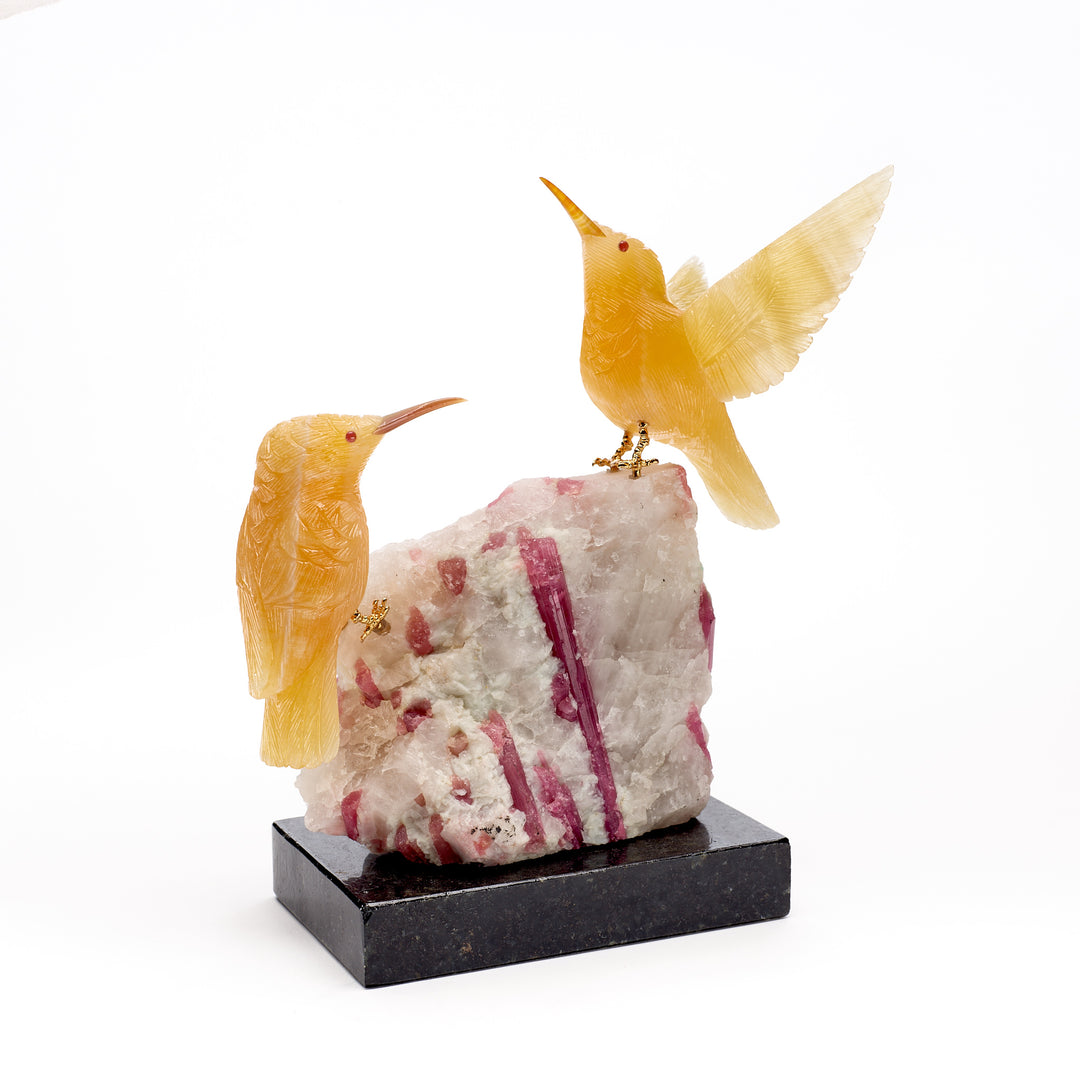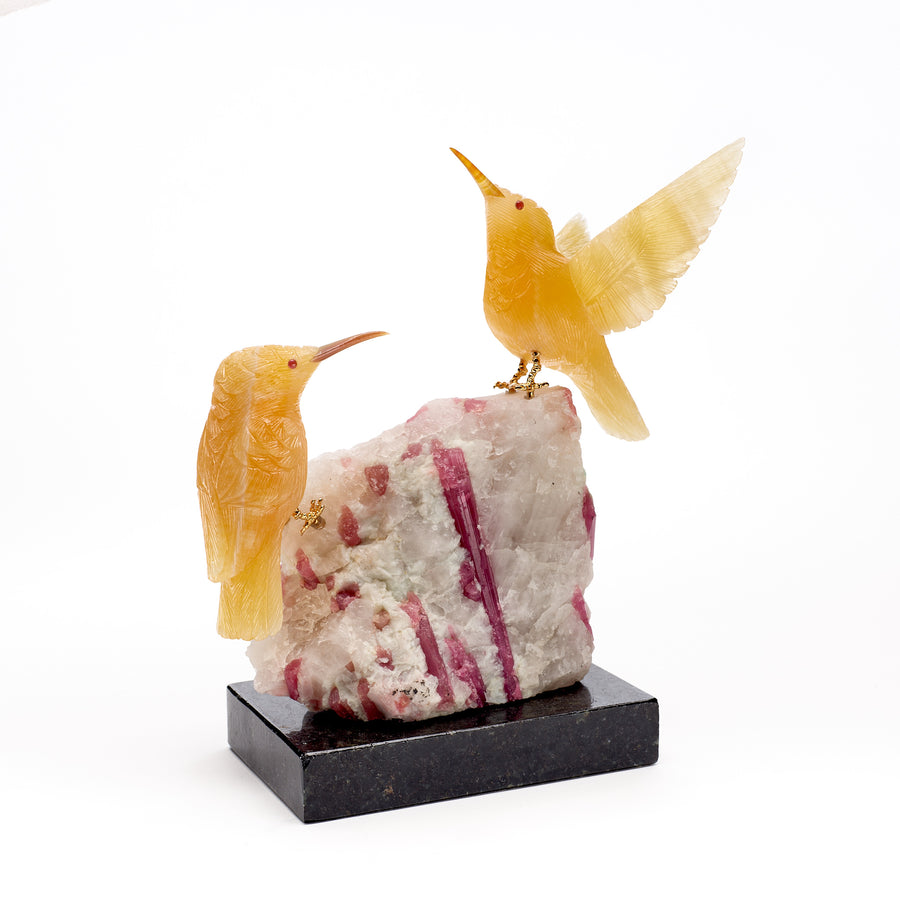
Hummingbird Pair on Tourmaline Gemstone Carving
- Free returns
- Low stock - 1 item left
- In stock
Tourmaline presents itself in a rainbow of colors, making it one of the most colorful, and most popular, gemstones. Tourmaline crystals form by hydrothermal activity in igneous and metamorphic rocks. The crystals form when hot water and vapors carry the necessary elements to form tourmaline in the empty spaces of rock- pockets, voids, and fractures. Brazil has been the world’s leading source of Tourmaline for nearly 500 years. Portuguese in the 1500s thought the colorful stones they obtained from indigenous people and streams were emeralds and sapphires- Tourmaline was not recognized as a distinct mineral until 1793.
Elbaite is the most well-known and valuable form of Tourmaline- most of the multi-color tourmalines and almost all Tourmaline gemstones are Elbaite. Elbaite is desired due to its color variety (it is one of the most colorful minerals) and depth of the colors. One of the most prized minerals, Elbaite form in highly aesthetic slender crystals, and instead of being faceted, many crystals are preserved for their beauty in collections. Often a specimen can have more than one color zone in the same crystal. These zones can alternate in color from the inside out (watermelon tourmaline) or from the top to bottom. Elbaite is strongly pleochroic, meaning transparent crystals will appear darker when viewed down the long axis of the crystal.
Elbaite was originally discovered in Elba, Italy (Tuscany region) in 1913, and has since been found all over the world.
6.5 x 3 x 7.5 inches
This Item is Not Eligible for Shipping and is Curbside Pickup Only from the Hermann Park Museum location in Houston.
